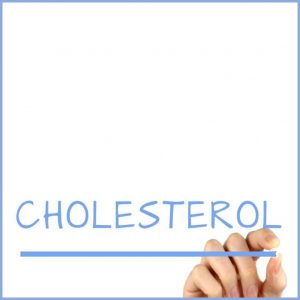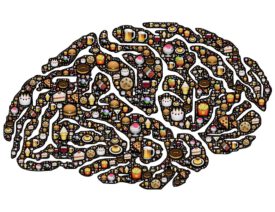Feeling stressed because of COVID19? How to feed your brain to optimize mental wellness under lockdown
Although you might be under lockdown, you are still allowed to go to the supermarket to buy food. The following information might help in terms of making healthier choices on what foods to buy. When we are under high stress, we can often reach for foods that are “comforting” (like cookies, donuts, cake, pastries, and chocolate bars), but these foods may not be the best choice for feeding your brain under stressful and demanding circumstances. Comfort foods are often calorie-rich but nutrient-poor. Further, under high stress (and it doesn’t actually matter what has caused the high stress, whether it be...
ADHD and its Frequent Comorbid Conditions
Having Attention-Deficit / Hyperactivity Disorder (ADHD) can be quite a burden to someone’s quality of life. People with ADHD generally have problems with regulating their attention and their impulses, resulting in concentration and memory problems as well as reckless behaviour [1]. Luckily, this condition is receiving more attention these days, and an increasing number of people are receiving adequate treatment in the form of medication and/or behavioural therapy. But what is much less known is that many people with ADHD also suffer from other mental and somatic conditions...
Vegan Diets and Healthy Minds
Vegans abstain from all animal products, for example, meat, fish, milk and dairy products, honey and other substances from animal origin, like milk powder. Nevertheless, countless foods remain that are “vegan” by nature: vegetables, fruits, cereals, legumes, rice, nuts, pasta (if made without eggs, of course), and so on. By contrast, vegetarians eat products made of meat but don’t eat meat and fish itself [1, 2]...
Crohn’s Disease – Therapeutic Options Beyond Medication
Crohn’s disease is a chronic inflammatory condition affecting the gastrointestinal tract – causing injuries or wounds anywhere in between the mouth and anus. Symptoms usually start in young adults, but can also occur in children or later in life. Often, it takes quite some time until a doctor diagnoses it because of the wide variety of symptoms. Patients suffering from Crohn’s disease often experience diarrhea, stomach pain, and unwanted weight loss. Furthermore, and these are all unspecific symptoms, they might report fever, fatigue, problems with their skin, joints or eyes. Symptoms come and go and might be severe at one...
Does Pizza Contribute to a Healthy Lifestyle? Insights from Research
In September 2019 the Ig Nobel Prizes were awarded at the renowned Harvard University. Contrary to the well-known Nobel Prize, the Ig Nobel Prizes are awarded annually to “honor achievements that first make people laugh, and then make them think.” As a psychologist in the New Brain Nutrition team, I am interested in the effects that diet can have both on your physical, but especially on your mental health. So one of the award winners especially caught my attention: Silvano Gallus from the Mario Negri Institute in Milano, Italy, was awarded the satiric prize for his research showing that pizza...
Low Cholesterol Levels in Boys Predict Impulsivity in Adult Men
Traditionally, cholesterol levels are associated with elderly people having to watch their diet and possibly take statins to prevent excessive cholesterol in their blood from causing cardiovascular problems [1]. But too low levels of cholesterol can also cause problems. Being an essential building block of both hormones and cell membranes insufficiency of cholesterol can lead to psychopathologies like aggression towards others and self, impulsivity and suicide [2]. Considering that about 25% of the body’s cholesterol is found in the brain it is not surprising that this lipid is associated with behaviour [3]....
Bipolar Disorder and Lifestyle Steps for Self-Management
Interview with Annett Oehlschläger, author of the book “You can eat stability?!“ After listening to a talk given by Miss Oehlschläger at a conference on bipolar disorder in 2019, and learning how she, as an affected person herself, manages her disorder, I decided to conduct this interview with her to stress the importance of a solid knowledge about one’s disorder, but also about body processes and nutrition. This interview had been conducted in German and translated to English. Miss Oehlschläger, after living with the diagnosis of a bipolar disorder for many years, you wrote a book named “Stabilität kann man...
Can the gut microbiome help us treat autism?
Can the gut bacteria help us to fight autism? According to a recently published study, introducing bacteria from healthy individuals into the gut of the children diagnosed with autism spectrum disorders (ASD) can markedly improve not only gut function but also the severity of ASD symptoms. ASD affect social interactions and communication, characterized by restricted, repetitive patterns of behavior, and activities. Currently, no cure exists for ASD treatment, but some medicines are available and can help with symptoms like depression, seizures, and insomnia. Due to the limited treatment options, scientists are looking for novel ways to treat autism and recently...
How does ADHD relate to unhealthy dietary habits? –The role of “Food addiction”
Recent research (1, 2) on children and adolescents has reported that ADHD was positively associated with unhealthy dietary habits, including a higher consumption of refined sugars, processed food, soft drink, instant noodles, and a lower intake of vegetables and fruits. However, the link between low-quality diets and risk of ADHD in adults was still not well established, which would be further explored in the Eat2beNICE research project. What is the underlying mechanism? There is still no clear answer. Nemours potential biological pathways by which dietary intake could have an impact on mental health were proposed during the past several years...
Feeding the Brain: How Does it Work?
Every day, our brain depends on what we eat. First and foremost, the brain needs tremendous amounts of energy, that can only be derived from food. While the human brain constitutes only two percent of the body’s weight, it consumes twenty percent of our daily energy intake [1]. When we eat too little, our brain is one of the first organs to suffer and send us warning signals: we become irritable, have difficulty concentrating, and feel dizzy or light-headed. In this blog, I will explain how food in your stomach is transformed into electrical activity in your brain cells...









